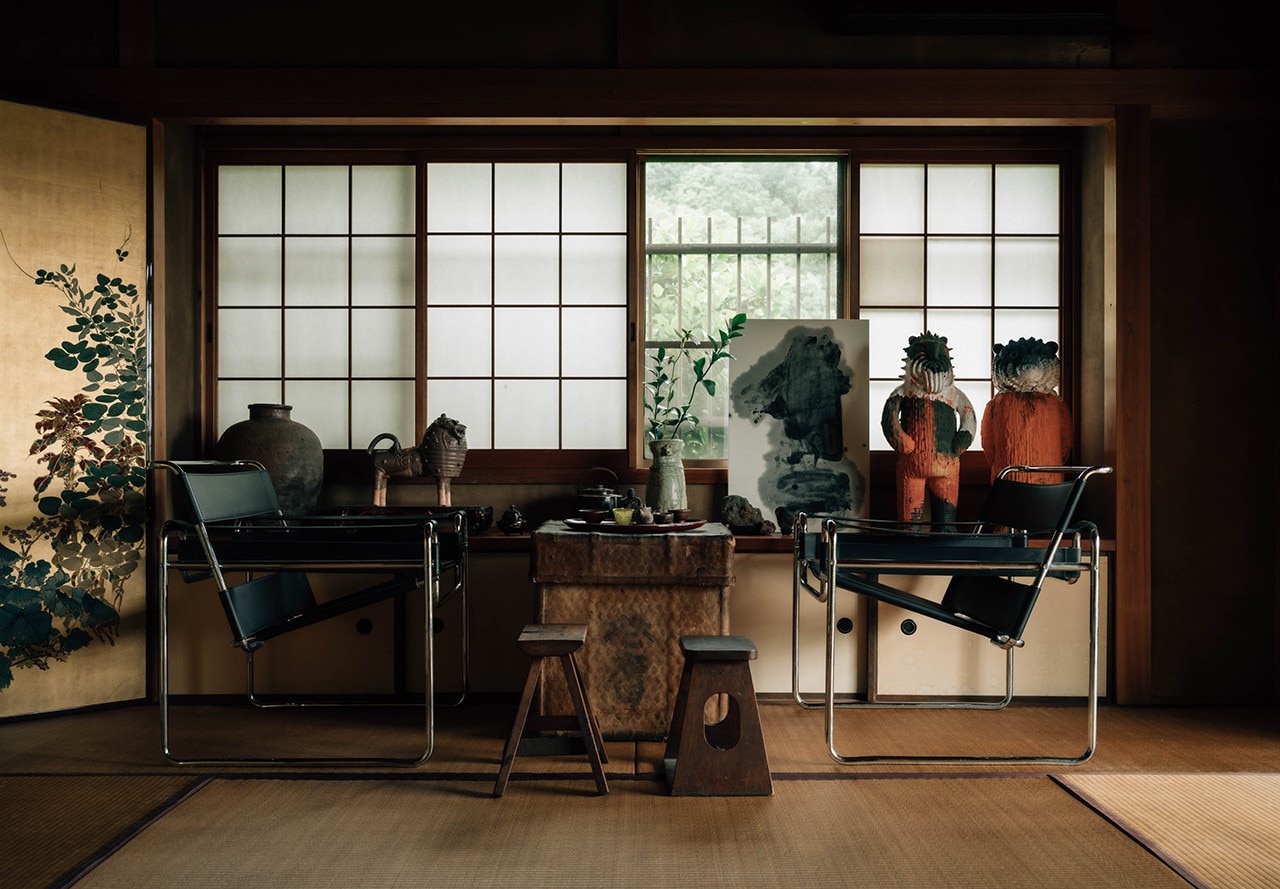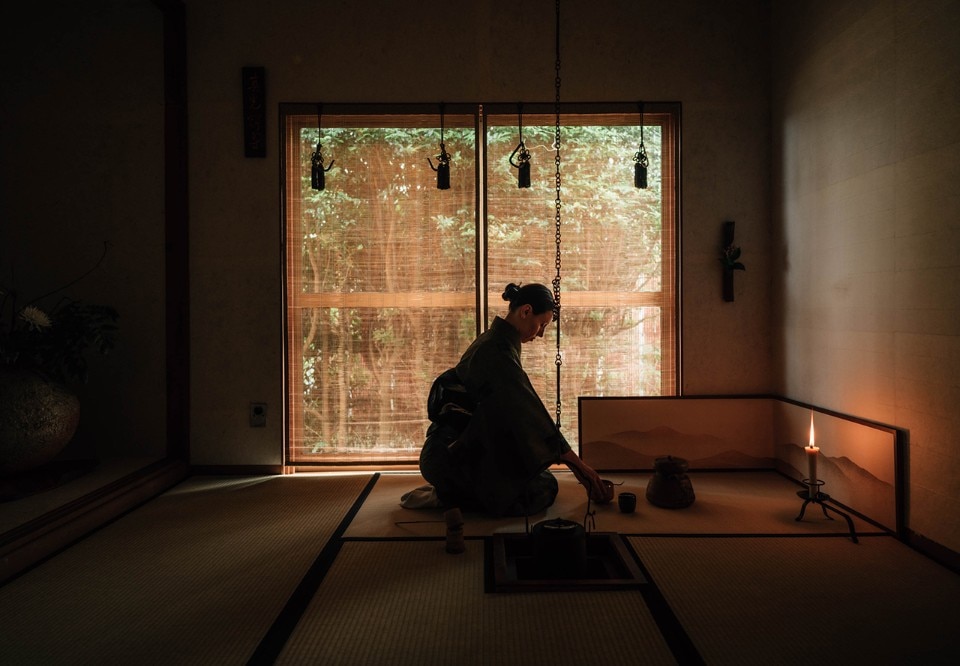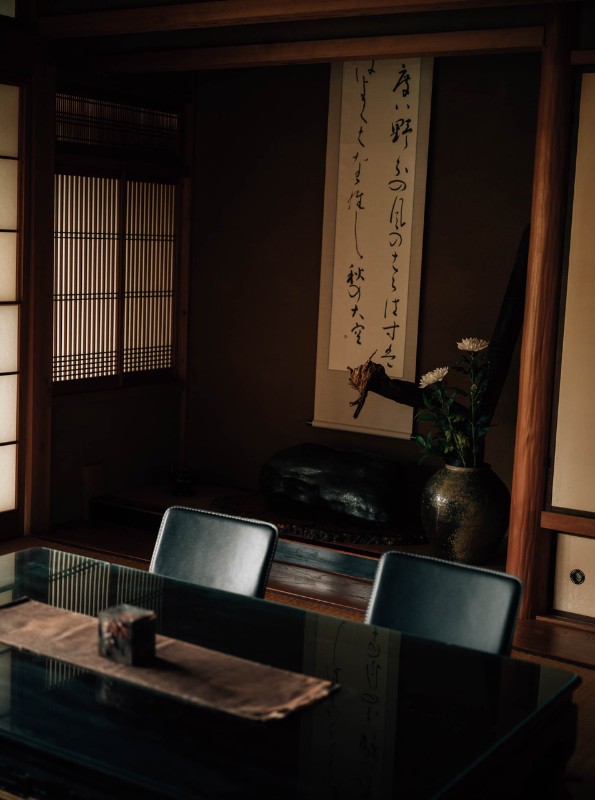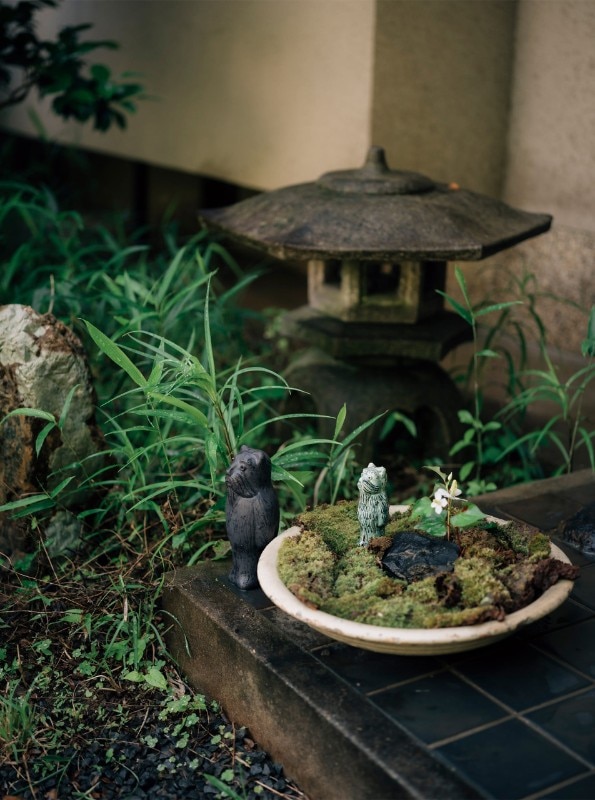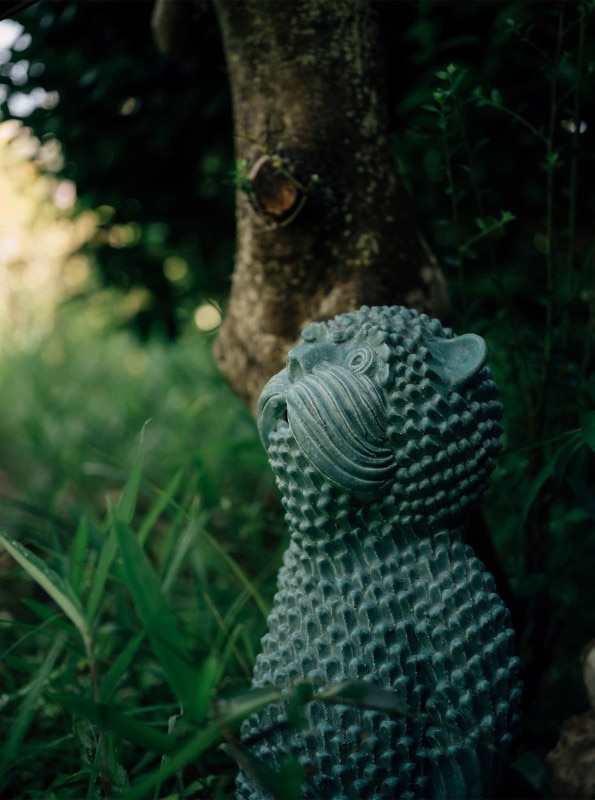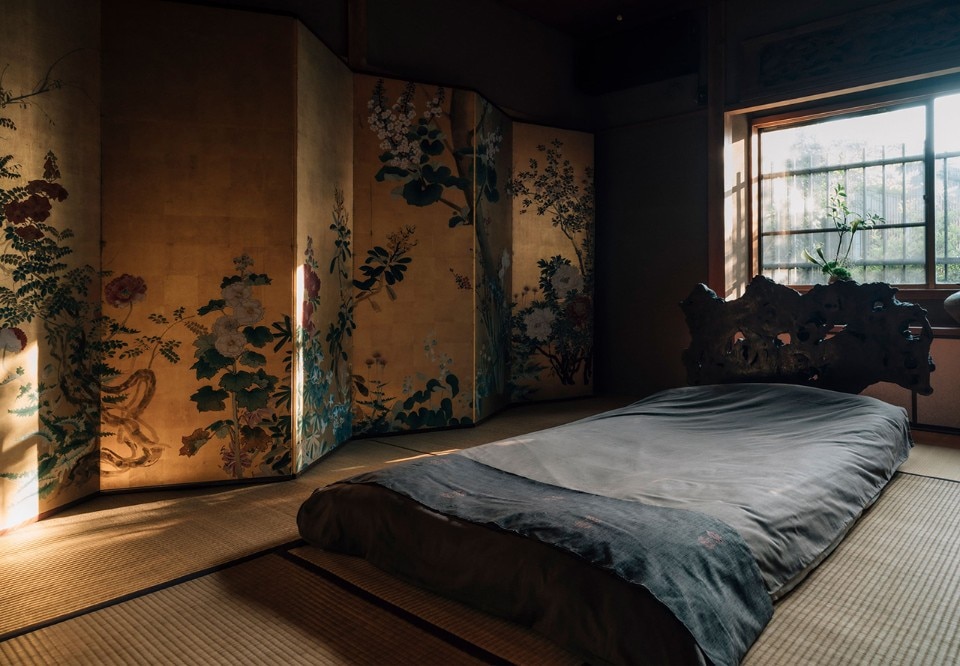In the heart of Kyoto, where traditions are linked to modernity, the MAKHNO studio has completed an intervention in which a house brings back the historical atmosphere of Japanese houses, combining it with Ukrainian ceramic art.
The domestic space becomes a sequence of rooms between art and tradition, in which each object is invested with an essential symbolic atmosphere. Minimalist, the house is composed simply, opening up to the Japanese tea tradition.
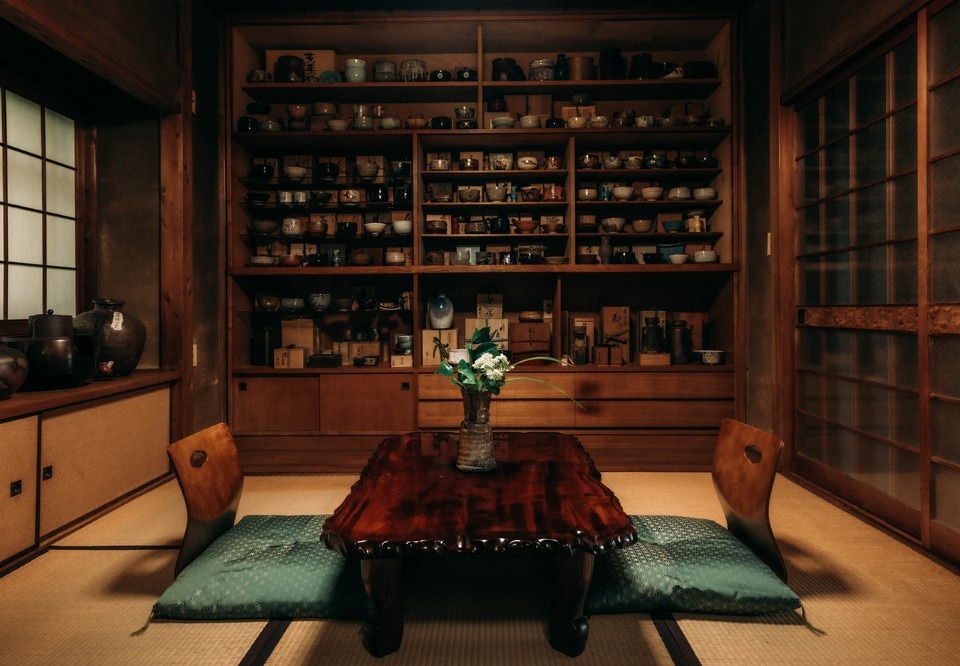
Starting from the entrance, the house features a small Japanese garden, where small terracotta statues produced by MAKHNO are placed next to the vegetation and stones. These take on a metaphorical and spiritual value of protection, inserting themselves spontaneously into the garden context. Entering the so-called genkan, the space of the house seems to lift itself out of time and space in a continuous dialogue between Japanese and Ukrainian art. Here, the traditional style of shoin-zukuri – which was born from the homes of the monks and samurai of the 15th and 16th centuries – permeates the space: doors, windows, and walls are light partitions made of sheets of rice paper, through which the light diffuses for the home.
For the tea ritual, a series of ceramics are collected in the kitchen, displayed as if to narrate the centenary history of the ceremony. Among these, the contemporary ceramics of the MAKHNO studio come together continuously, inserting sculptures with colorful zoomorphic shapes typical of the millenary tradition of the Ukrainian region.
As the designers write: “This is a house with a soul,” where every glimpse tells a story of the world.


